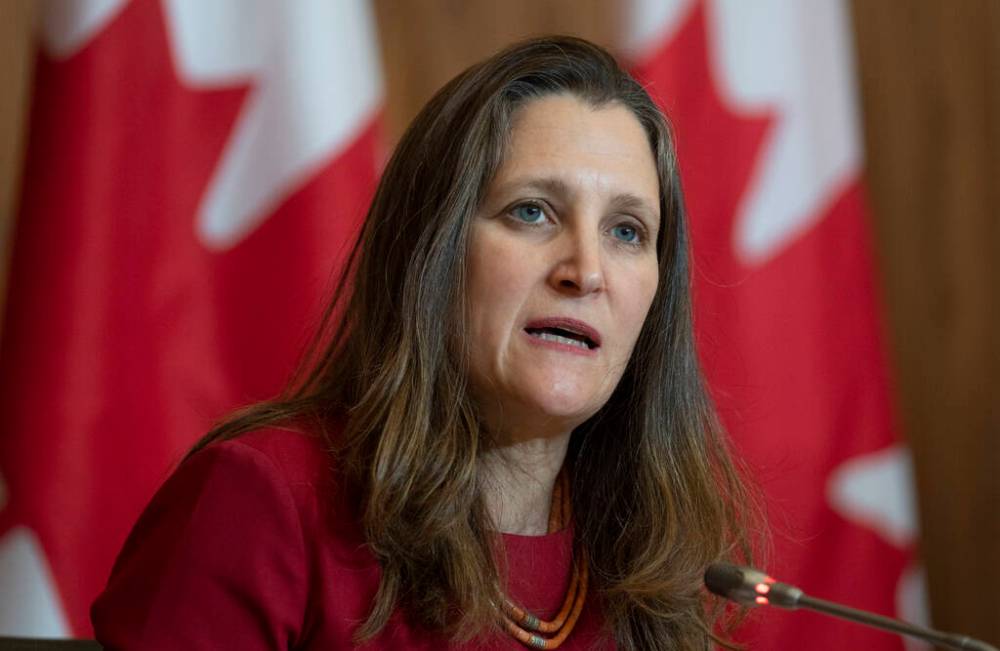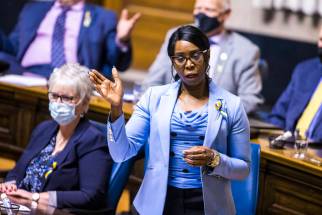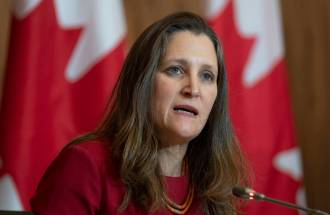Federal budget must reflect new fiscal reality
Read this article for free:
or
Already have an account? Log in here »
To continue reading, please subscribe:
Monthly Digital Subscription
$0 for the first 4 weeks*
- Enjoy unlimited reading on winnipegfreepress.com
- Read the E-Edition, our digital replica newspaper
- Access News Break, our award-winning app
- Play interactive puzzles
*No charge for 4 weeks then price increases to the regular rate of $19.00 plus GST every four weeks. Offer available to new and qualified returning subscribers only. Cancel any time.
Monthly Digital Subscription
$4.75/week*
- Enjoy unlimited reading on winnipegfreepress.com
- Read the E-Edition, our digital replica newspaper
- Access News Break, our award-winning app
- Play interactive puzzles
*Billed as $19 plus GST every four weeks. Cancel any time.
To continue reading, please subscribe:
Add Free Press access to your Brandon Sun subscription for only an additional
$1 for the first 4 weeks*
*Your next subscription payment will increase by $1.00 and you will be charged $16.99 plus GST for four weeks. After four weeks, your payment will increase to $23.99 plus GST every four weeks.
Read unlimited articles for free today:
or
Already have an account? Log in here »
Hey there, time traveller!
This article was published 14/03/2022 (1371 days ago), so information in it may no longer be current.
Night life in Canadian cities perked up sharply in February, after the January lull induced by the Omicron variant of COVID-19. Statistics Canada reported last week that employment in bars, restaurants and hotels was up by 12 per cent in February compared to the preceding month, while information, culture and recreation employment was up 9.9 per cent.
The sharp month-to-month increase suggests Canadian workers were eager to work and employers were keen to hire them as long as improving pandemic conditions and relaxed government restrictions permitted, and as long as customers seemed likely to turn up for meals, drinks and entertainment.
The revival of night life coincided with a broader revival of Canadian industry, according to StatCan’s February Labour Force Survey. Employment expanded in all regions and all industries and for all demographic groups, so the number of employed people increased by 337,000, or 1.8 per cent, month over month.

The unemployment rate fell by a whole percentage point, to 5.5 per cent – for the first time, falling below the pre-pandemic level of 5.7 per cent set in February 2020.
If that feels as though the COVID-19 recession is over, it is worth remembering that the employment numbers rise and fall according to the state of the pandemic. A new and dangerous variant of the virus or a troubling outbreak could still drive consumers back into isolation and close bars, restaurants and places of entertainment, with resulting harm to jobs and businesses.
For the moment, however, the need to revive industry and bring Canadians back to work has been dealt with. This would leave inflation as the more pressing problem Canada’s finance ministers and central bankers have to solve.
The Labour Force Survey found average hourly wages in February had risen 3.1 per cent above the rates that prevailed a year earlier. Since consumer prices had risen 5.1 per cent during the same period, that meant Canadian families had lost ground and they must stretch their finances a little further.
Finance Minister Chrystia Freeland, who has been shovelling money out to families and employers during two years of pandemic, now has to shift gears and switch into post-pandemic mode.
This cannot continue indefinitely. Employed people will eventually insist their pay has to rise in step with the prices they pay for goods and services. Rising wage levels may, in turn, force businesses to raise their prices, sliding Canada into a wage/price spiral that may be difficult to curtail.
Finance Minister Chrystia Freeland, who has been shovelling money out to families and employers during two years of pandemic, now has to shift gears and switch into post-pandemic mode. She was saying in late January that jobs and economic growth should be the foundation of the budget she must present this spring. The February employment report suggests, however, that she might have to think again.
In the current context, in which unemployment is unusually low and price increases are outpacing wage increases, an expansionary budget may do more harm than good. The Bank of Canada started increasing interest rates two weeks ago, and warned that persistently elevated inflation was increasing the risk that longer-run inflation expectations could drift upward. The government’s spending plans will have to take account of that same risk.
Expansionary budgets are more fun to write, but Ms. Freeland will get no thanks if she keeps splashing out the money and tips the country into a feverish spiral of price increases — with the recessionary hangover that normally follows.








